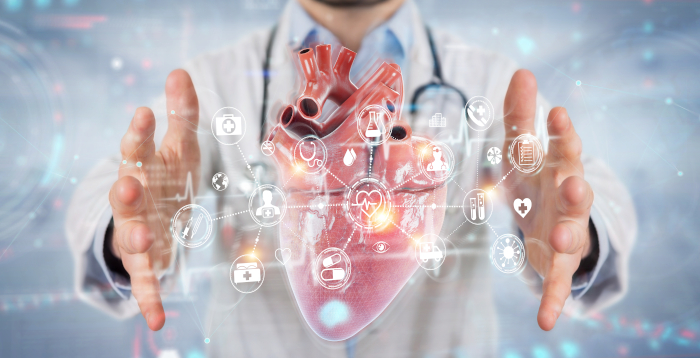Cardiac rehabilitation is a treatment that uses exercise as a tool and is complemented by adding the following benefits to patients suffering from cardiovascular disease:
- Biological aspects: Increases the tolerance to effort, improves life prognosis, reduces relapses, delays the evolution of the illness and in some cases, it may influence regression.
- Social aspects: favors early reintegration to productive activity, reduces the costs in hospitalization and medicines, improves family interaction, etc.
- Psychological aspects: decreases anxiety, depression, dependency to tobacco and increases quality of life.
Cardiac rehabilitation is based on an integral assessment of the patient, to determine an individualized training program tailored to his/her needs; this program considers from tolerance to basal effort, as well as the risks of complications during the exercise. The training emphasis is set on moderate intensity aerobic exercise, taking in consideration the preference and physical condition of the patient.
During the program:
- During the program the patient is supervised by a cardiac rehabilitator, who will indicate the correct technique of training, and can identify possible complications and treatment.
- The intensive phase of the program must be closely monitored, but later the patient can continue the program, under periodic supervision only
- The intensive phase of the program depends on the overall risk of the patient and can be between 4 and 20 weeks.
The patients that can benefit from a cardiac rehabilitation program are those with the following diagnoses:
- Ischemic heart disease.
- Recent myocardial infarction (less than 1 month).
- Myocardial infarction (more than one month)
- Angina (chest pain caused by blocked heart arteries)
- Chronic heart failure
- Post-bypass surgery
- Period after the placement of stents in the arteries
- Post placement of pacemakers or cardio-defibrillator
- Post-surgery of one or more heart valves
- Patients with light to moderate pulmonary hypertension
- Patients with significant obesity
- Patients with a 10-year high cardiovascular risk, such as diabetes or chronic kidney failure
- Patients with peripheral arterial problems
Contraindications of the program:
There are some contraindications for this rehabilitation program such as:
- Dissecting aneurysm of the aorta (clots in the aorta walls)
- Severe obstruction of the left ventricular outflow tract
- Functional Class IV (constant lack of air, even at rest)
*The cardiac rehabilitation program is not only based on physical training, it also includes changes in lifestyle such as diet, smoking, and the correct use of medicines, among others. Benefits are noticeable after the first week of training.






